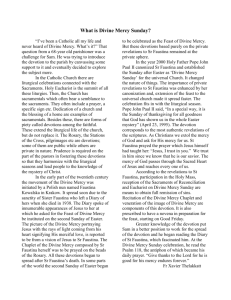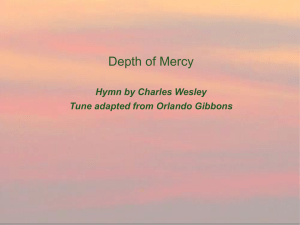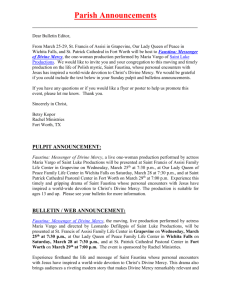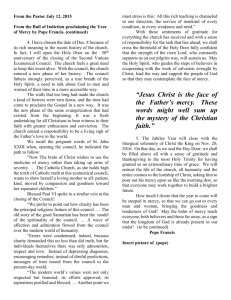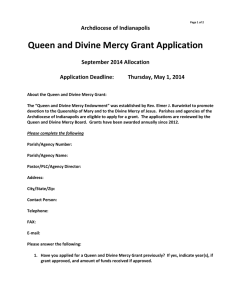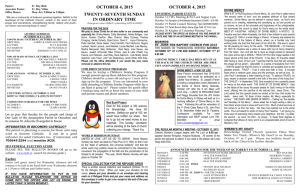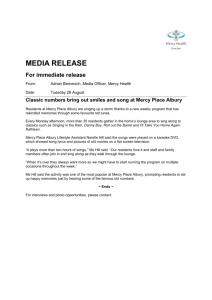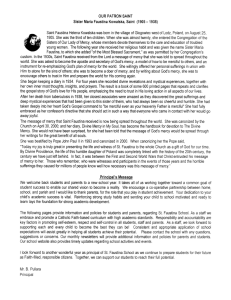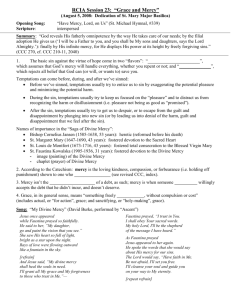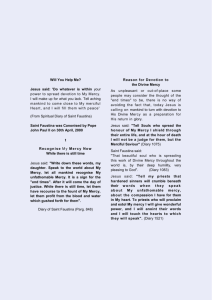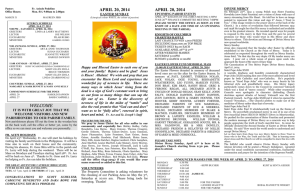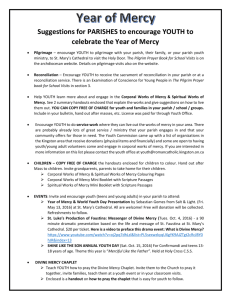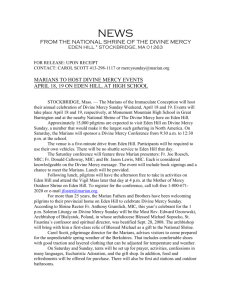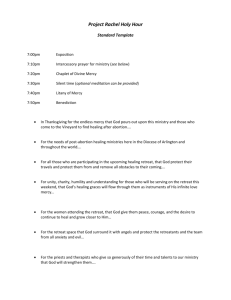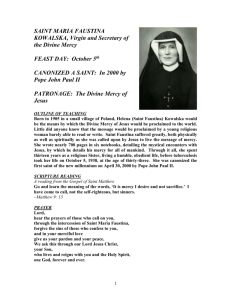Divine Mercy - Saint Hugh of Grenoble Parish
advertisement
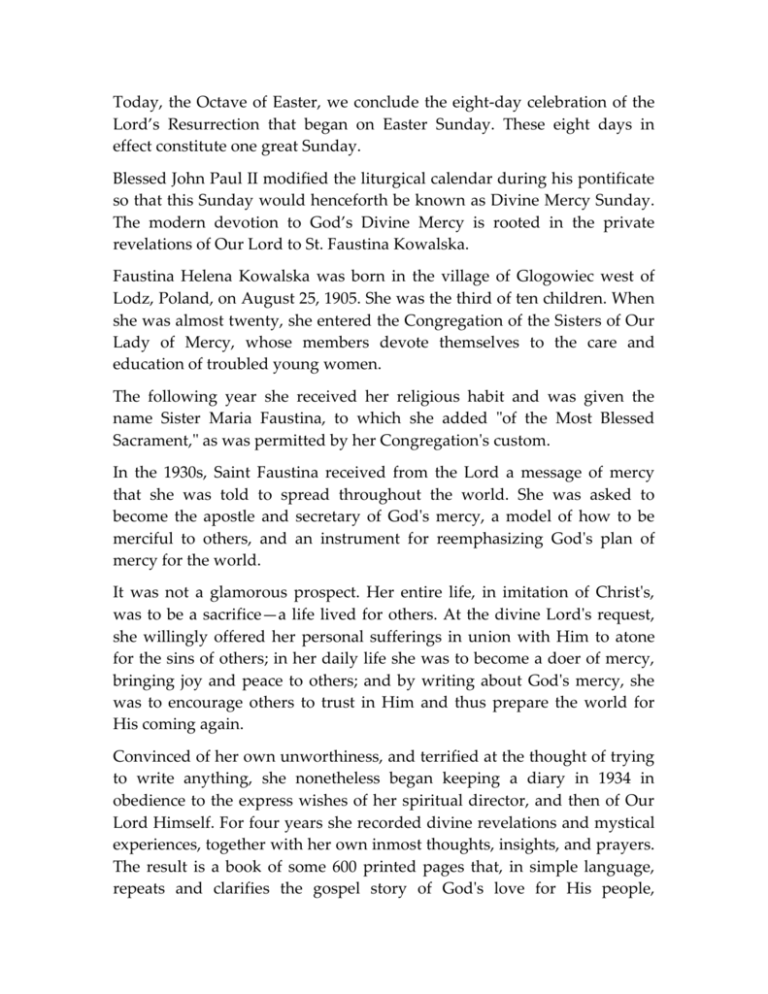
Today, the Octave of Easter, we conclude the eight-day celebration of the Lord’s Resurrection that began on Easter Sunday. These eight days in effect constitute one great Sunday. Blessed John Paul II modified the liturgical calendar during his pontificate so that this Sunday would henceforth be known as Divine Mercy Sunday. The modern devotion to God’s Divine Mercy is rooted in the private revelations of Our Lord to St. Faustina Kowalska. Faustina Helena Kowalska was born in the village of Glogowiec west of Lodz, Poland, on August 25, 1905. She was the third of ten children. When she was almost twenty, she entered the Congregation of the Sisters of Our Lady of Mercy, whose members devote themselves to the care and education of troubled young women. The following year she received her religious habit and was given the name Sister Maria Faustina, to which she added "of the Most Blessed Sacrament," as was permitted by her Congregation's custom. In the 1930s, Saint Faustina received from the Lord a message of mercy that she was told to spread throughout the world. She was asked to become the apostle and secretary of God's mercy, a model of how to be merciful to others, and an instrument for reemphasizing God's plan of mercy for the world. It was not a glamorous prospect. Her entire life, in imitation of Christ's, was to be a sacrifice—a life lived for others. At the divine Lord's request, she willingly offered her personal sufferings in union with Him to atone for the sins of others; in her daily life she was to become a doer of mercy, bringing joy and peace to others; and by writing about God's mercy, she was to encourage others to trust in Him and thus prepare the world for His coming again. Convinced of her own unworthiness, and terrified at the thought of trying to write anything, she nonetheless began keeping a diary in 1934 in obedience to the express wishes of her spiritual director, and then of Our Lord Himself. For four years she recorded divine revelations and mystical experiences, together with her own inmost thoughts, insights, and prayers. The result is a book of some 600 printed pages that, in simple language, repeats and clarifies the gospel story of God's love for His people, emphasizing, above all, the need to trust in His loving action in all the aspects of our lives. It also reveals an extraordinary example of how to respond to God's mercy and manifest it to others. Saint Faustina's spiritual life was based on deep humility, purity of intention, and loving obedience to the will of God in imitation of the virtues of the Blessed Virgin Mary. Her special devotion to Mary Immaculate and to the sacraments of Eucharist and Reconciliation gave her the strength to bear all her sufferings as an offering to God on behalf of the Church and those in special need, especially great sinners and the dying. She wrote and suffered in secret, with only her spiritual director and some of her superiors aware that anything special was taking place in her life. After her death from tuberculosis in 1938, even her closest associates were amazed as they began to discover what great sufferings and deep mystical experiences had been given to this sister of theirs, who had always been so cheerful and humble. She had taken deeply into her heart God's gospel command to "be merciful even as your heavenly Father is merciful" as well as her confessor's directive that she should act in such a way that everyone who came in contact with her would go away joyful. The message of mercy that Saint Faustina received is now being spread throughout the world; she was canonized by the Church on April 30, 2000; and her diary, Divine Mercy in My Soul, has become the handbook for devotion to The Divine Mercy. She would not have been surprised, for she had been told that the message of God's mercy would spread through her writings for the great benefit of souls. In a prophetic statement she had declared: I feel certain that my mission will not come to an end upon my death, but will begin. O doubting souls, I will draw aside for you the veils of heaven to convince you of God's goodness (Diary 281). Many of the faithful have found great comfort and inspiration in praying The Divine Mercy chaplet. I warmly commend this devotion to you. Sincerely in Christ,

